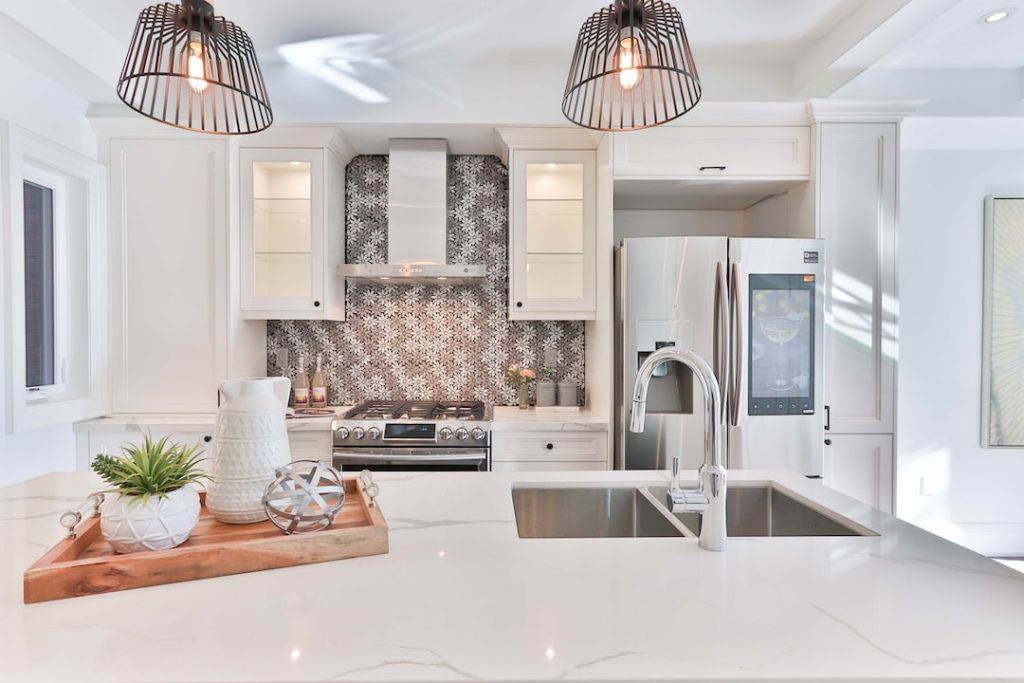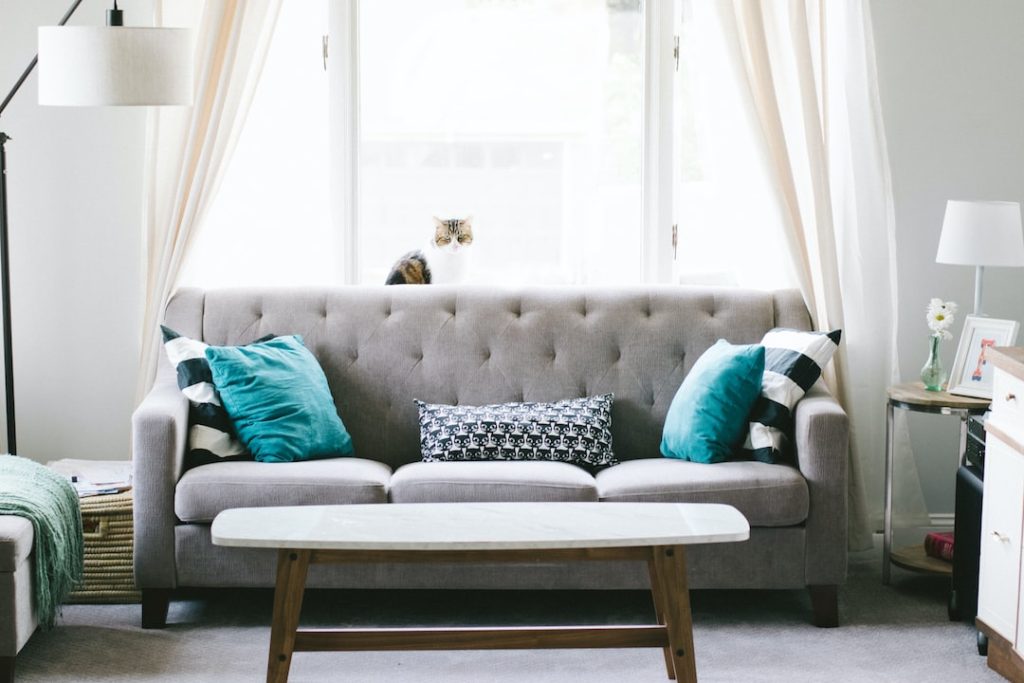Feng Shui is an ancient Chinese practice that focuses on creating harmony and balance in living spaces. The principles of Feng Shui are based on the belief that the energy, or chi, in our environment can greatly impact our well-being and success. By arranging and decorating our homes in accordance with Feng Shui principles, we can create a positive and harmonious energy flow that promotes health, happiness, and prosperity.
What is Feng Shui and how does it work?
Feng Shui, which translates to “wind” and “water,” is a practice that dates back thousands of years. It is based on the idea that everything in our environment has energy, and by arranging our living spaces in a certain way, we can enhance the flow of positive energy and minimize negative energy.
The principles of Feng Shui include the placement of furniture, the use of colors, the incorporation of natural materials, and the arrangement of objects to create a harmonious and balanced environment. By following these principles, we can create a space that supports our physical, emotional, and spiritual well-being.
The influence of colors on the energy in your living space
Colors have a significant impact on the energy in our living spaces. Each color has its own unique energy and can evoke different emotions and moods. In Feng Shui, it is important to choose colors that promote positive energy and create a harmonious atmosphere.
For example, warm colors like red, orange, and yellow are associated with passion, creativity, and abundance. These colors can be used in areas where you want to stimulate energy and activity, such as the living room or home office.
On the other hand, cool colors like blue, green, and purple are associated with calmness, relaxation, and tranquility. These colors are ideal for bedrooms or areas where you want to create a peaceful and serene atmosphere.
The importance of natural materials in your interior
Incorporating natural materials into your interior design is an essential aspect of Feng Shui. Natural materials, such as wood, stone, and plants, have a grounding and calming effect on the energy in your living space.
Natural materials bring a sense of connection to nature and create a harmonious and balanced environment. They also have the ability to absorb and release energy, helping to maintain a positive flow of chi.
To incorporate natural materials into your interior design, you can use wooden furniture, stone countertops, and natural fiber rugs. You can also bring in plants to add a touch of nature and improve the air quality in your home.
Tips for creating a peaceful bedroom
The bedroom is a sacred space where we rest and rejuvenate. It is important to create a peaceful atmosphere in this room to promote relaxation and restful sleep.
To create a calming atmosphere in your bedroom, start by choosing soothing colors like soft blues or greens. These colors have a calming effect on the mind and promote relaxation.
Next, declutter your bedroom and create a clean and organized space. Clutter can disrupt the flow of energy and create a sense of chaos. Keep only essential items in your bedroom and find storage solutions to keep things tidy.
Finally, incorporate soft lighting and natural materials into your bedroom decor. Use soft, diffused lighting to create a cozy and relaxing ambiance. Choose bedding made from natural materials like cotton or linen for added comfort.
Balancing the energy in your kitchen

The kitchen is often considered the heart of the home, where nourishment and abundance are created. It is important to create a balanced and harmonious energy in this space to support health and prosperity.
To create a harmonious kitchen, start by decluttering your countertops and cabinets. Clear away any unnecessary items that are taking up space and creating visual clutter.
Next, pay attention to the placement of your stove and sink. In Feng Shui, the stove represents wealth and abundance, so it should be kept clean and in good working order. The sink represents the flow of energy, so it should be positioned in a way that allows for easy movement and access.
Finally, incorporate elements of nature into your kitchen decor. Display fresh fruits and vegetables on your countertops or bring in potted herbs to add a touch of greenery. These natural elements will enhance the energy in your kitchen and promote health and vitality.
The role of plants in Feng Shui
Plants play a vital role in Feng Shui as they have the ability to purify the air, improve energy flow, and bring a sense of vitality to your living space.
Incorporating plants into your living space is a simple and effective way to enhance the energy and create a harmonious environment. Plants release oxygen and absorb carbon dioxide, improving the air quality in your home.
When choosing plants for your living space, consider their size, shape, and color. Large leafy plants like the fiddle leaf fig or snake plant are ideal for creating a sense of abundance and vitality. Small flowering plants like orchids or peace lilies can add a touch of color and beauty to your space.
Optimizing your workspace for productivity
Creating a productive workspace is essential for success and focus. By applying Feng Shui principles to your workspace, you can enhance productivity, creativity, and overall well-being.
Start by decluttering your workspace and keeping it clean and organized. Clutter can create mental distractions and hinder productivity. Keep only essential items on your desk and find storage solutions to keep things tidy.
Next, position your desk in a way that allows for a clear view of the room. This will give you a sense of control and help you stay focused on your tasks.
Finally, incorporate elements of nature into your workspace. Place a small plant on your desk or hang a nature-inspired artwork on the wall. These natural elements will help create a sense of calm and promote creativity.
Using mirrors and other decorative objects in Feng Shui
Mirrors and other decorative objects can be powerful tools in Feng Shui as they have the ability to reflect and redirect energy.
Mirrors can be used to expand a space, bring in more light, and create a sense of balance. They can also be strategically placed to reflect positive energy and deflect negative energy.
Other decorative objects, such as crystals or wind chimes, can also be used to enhance the energy in your living space. Crystals are believed to have healing properties and can be placed in specific areas to promote balance and harmony. Wind chimes create soothing sounds that help to disperse stagnant energy and promote positive chi flow.
Measuring and improving the energy of your home
Measuring and improving the energy of your home is an important aspect of Feng Shui. There are several tools and techniques that can be used to assess the energy in your living space and make necessary adjustments.
One common tool used in Feng Shui is the Bagua map, which is a grid that divides your living space into nine areas, each representing a different aspect of life. By overlaying the Bagua map onto your floor plan, you can identify areas that may need attention and make adjustments accordingly.
Other techniques for improving the energy in your home include smudging with sage or incense, using essential oils to cleanse and purify the air, and incorporating sound therapy with singing bowls or bells.
Applying Feng Shui in your garden and outdoor spaces
Feng Shui principles can also be applied to your garden and outdoor spaces to create a harmonious and balanced environment.
Start by decluttering your outdoor space and creating clear pathways for energy flow. Remove any dead plants or debris that may be blocking the flow of chi.
Next, incorporate elements of nature into your garden design. Plant flowers and trees that attract birds and butterflies, and create a sense of tranquility with a water feature like a fountain or pond.
Finally, create areas for relaxation and contemplation in your outdoor space. Set up a seating area where you can enjoy the beauty of nature and connect with the energy of the earth.
Feng Shui is a powerful practice that can greatly enhance the energy in your living space and promote health, happiness, and prosperity. By following the principles of Feng Shui and making simple adjustments to your interior design, you can create a harmonious and balanced environment that supports your well-being.
Whether you are looking to create a peaceful bedroom, a productive workspace, or a serene garden, Feng Shui principles can be applied to any area of your home. So why not give it a try and see how Feng Shui can transform your living space and improve your quality of life?
Ontdek hoe je de principes van Feng Shui kunt toepassen in je leefruimte met behulp van verschillende decoratieve elementen. Een interessant artikel dat je hierbij kan helpen, is “Foto gedrukt op spiegel aluminium” waarin wordt uitgelegd hoe je een foto kunt laten afdrukken op een spiegel aluminium plaat om een schitterend effect te creëren. Deze unieke decoratie kan niet alleen harmonie brengen in je leefruimte, maar ook een persoonlijk tintje toevoegen aan je interieur.
FAQs
Wat is Feng Shui?
Feng Shui is een oude Chinese filosofie die zich richt op het creëren van harmonie en balans tussen de mens en zijn omgeving. Het gaat om het optimaliseren van de energiestroom in een ruimte om zo positieve invloeden te bevorderen en negatieve invloeden te verminderen.
Hoe kan Feng Shui worden toegepast in mijn leefruimte?
Feng Shui kan worden toegepast in je leefruimte door het optimaliseren van de energiestroom. Dit kan worden bereikt door het plaatsen van meubels op de juiste plekken, het gebruik van kleuren en materialen die de energie bevorderen en het vermijden van negatieve elementen zoals rommel en scherpe hoeken.
Wat zijn enkele basisprincipes van Feng Shui?
Enkele basisprincipes van Feng Shui zijn het creëren van een goede energiestroom, het vermijden van negatieve elementen zoals rommel en scherpe hoeken, het gebruik van kleuren en materialen die de energie bevorderen en het plaatsen van meubels op de juiste plekken.
Kan Feng Shui helpen bij het verbeteren van mijn gezondheid en welzijn?
Ja, Feng Shui kan helpen bij het verbeteren van je gezondheid en welzijn door het creëren van een harmonieuze omgeving die positieve energie bevordert en negatieve energie vermindert. Dit kan leiden tot een betere nachtrust, minder stress en een algemeen gevoel van welzijn.
Moet ik een expert inhuren om Feng Shui toe te passen in mijn leefruimte?
Het is niet noodzakelijk om een expert in te huren om Feng Shui toe te passen in je leefruimte, maar het kan wel helpen om een beter begrip te krijgen van de principes en hoe ze toe te passen. Er zijn veel boeken en online bronnen beschikbaar die kunnen helpen bij het leren van de basisprincipes van Feng Shui.



